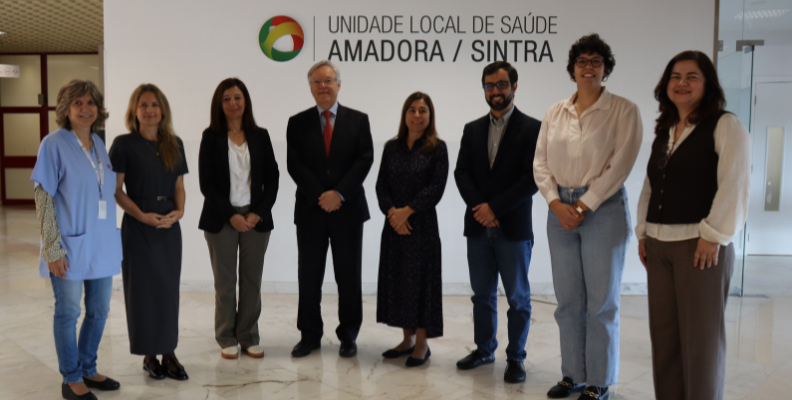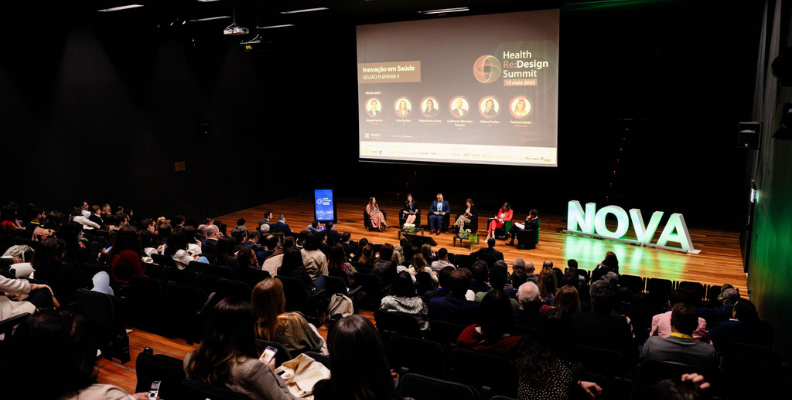The NOVA National School of Public Health (NOVA NSPH) organised the event ‘Public Health Impact: Designing, monitoring and evaluating’, organised by the Knowledge Center Public Health ImpACT. The event, which took place on 7 January, brought together experts and representatives from different areas to discuss challenges and opportunities in evaluating health policies, technologies and services.
The opening session was attended by the vice-president of the ACSS, Carlos Galamba, representing the Secretary of State for Health Management, Cristina Vaz Tomé, and the deputy director of NOVA NSPH, Rui Santana, representing the director, Sónia Dias.
In the panel discussions that followed, Chris Millett and André Peralta-Santos addressed the challenges of promoting healthy lifestyles from a global health perspective, giving some examples of concrete measures and the evaluation that has been carried out, namely taxes on soft drinks, baby food, restrictions on mobility during the pandemic, etc. This panel particularly emphasised the importance of academia anticipating needs in terms of evaluating health policies.
At the second table, Joana Alves and Pedro Laires discussed the economic evaluation of health technologies, from demonstrating clinical added value to financial sustainability. Joana Alves showcased NOVA NSPH’s experience by presenting some studies that can help in decisions related to technology assessment, namely works that focused on the indirect costs attributed to obesity, the costs of food insecurity, as well as studies in the area of diabetes and lung transplantation. In this context, Pedro Laires emphasised that academia should be the focus of evidence, and argued that more micro-costing data is needed.
Finally, Julian Perelman and Ricardo Mestre led the discussion on the integration of care in a fragmented system. Julian Perelman began by reminding us that the economic perspective is that of the social sciences, and that the impact varies according to the social, cultural or economic context. In his presentation, he shared some work in primary health care, with the evaluation of incentives in Model B USFs, as well as in mental health. Ricardo Mestre emphasised that evaluation is an essential contribution to good governance and a strengthening of the democratic process, and addressed the main reforms that the SNS will undergo in 2022 and 2023, namely the extension of the Local Health Units model.
In his closing remarks, Pedro Pita Barros highlighted the main conclusions and keywords of the event, namely time, measurement, evidence, behaviour, accumulated stock, among others. For Pita Barros, one of the challenges that came out of the event was managing impartiality, namely differentiating between the opinions and positions of experts.

Overall, participants emphasised the importance of measuring and communicating the impact of public health initiatives, with a focus on transparency, equity and value. The stock of knowledge accumulated by the institution was emphasised, which can be used to leverage future initiatives. The importance of quality data as a basis for robust and effective impact evaluation, the role of patient integration in the various phases of the evaluation process, and the need for collaboration with public and private institutions to overcome existing challenges were also emphasised.
The event was an important moment for exchanging experiences and building bridges between different sectors, with NOVA NSPH contributing with this initiative to the advancement of the evaluation of health policies, technologies and services in Portugal.



